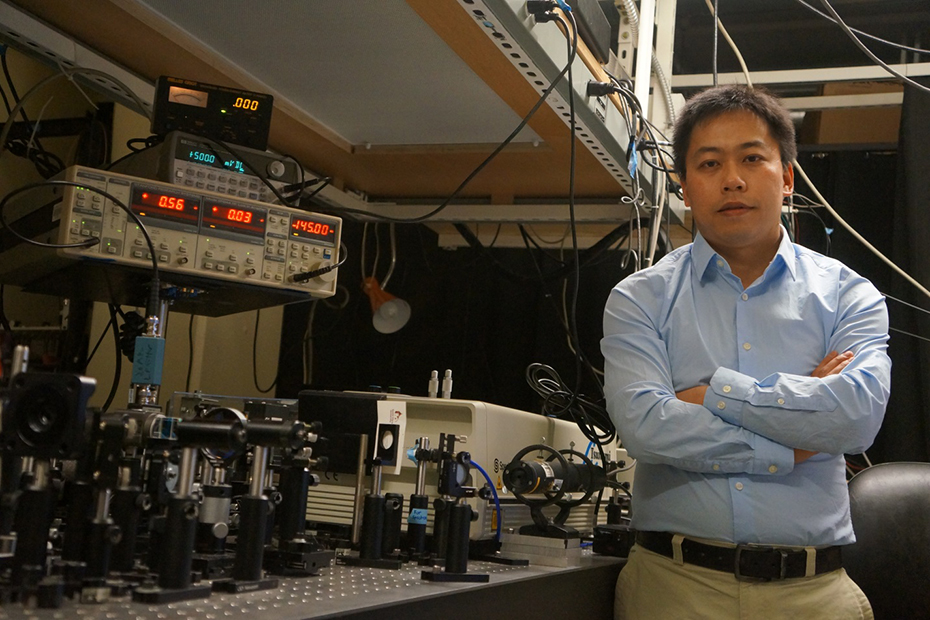Yongjie Hu, an MAE assistant professor at the UCLA Henry Samueli School of Engineering and Applied Science, has received a National Science Foundation CAREER award, the agency’s highest honor for junior faculty.
The five-year, half-million dollar grant will support Prof Hu’s highly innovative and interdisciplinary research in advancing modern electronics and photonics applications by developing new thermal materials and advanced spectroscopy metrologies. “Many thanks for the support from the NSF CAREER award,” Hu said, “In some the most frontier areas of thermal science and engineering, the atomistic and ab initio theories have made substantial progress during last decades. Now the essential challenge is how to experimentally realize these predictions, and to provide better fundamental understandings and application opportunities. In particular, it remains very challenging in the field to demonstrate some of the theoretically predicted novel materials and device concepts since an integral knowledge of thermal engineering, materials chemistry, and transport physics are required — and that’s where our interdisciplinary approach aims to make innovations in experiments in conjunction with theories!”
This CAREER project aims at solving the critical technological challenge in thermal management by developing new materials of extreme properties that can dramatically improve energy efficiency and device performance. Hu’s group develops new characterization metrologies, including advanced phonon spectral mapping spectroscopy and anisotropic thermal measurement based on the time-domain thermoreflectance technique, and advanced atomic-level material structural control methods, to establish detailed structure-property relationships with microscale quantification. Experimental measurement results including phonon spectra are analyzed using ab initio density functional theory (DFT) and multiscale Boltzmann transport equations; experiments in hierarchical structures spanning from the nano-, meso-, to macro-scales will be used to validate and develop new modeling. Completion of this project may lead to transformative technological innovations for advancing the performance and energy-efficiency of future electronics and photonics. In addition, the programs will encourage interest in thermal science and engineering by integrating the multidisciplinary research components with various education and outreach activities.
A pioneering researcher, Hu has also recently received the Young Investigator Award from US Air Force, New Investigator Award from the American Chemical Society, the Best Poster Award of the American Society of Mechanical Engineers (ASME) Heat Transfer Division, and been selected twice to TR35 finalists by MIT Technology Review. Hu’s research program at the university is focused on understanding and engineering nanoscale transport phenomena and advanced materials to push the frontiers of electronics, photonics, batteries, and energy. His group, the H-Lab, is also working on developing sensors and metamaterials based on novel 2D nanomaterials for applications in biomedicine and robotics.

